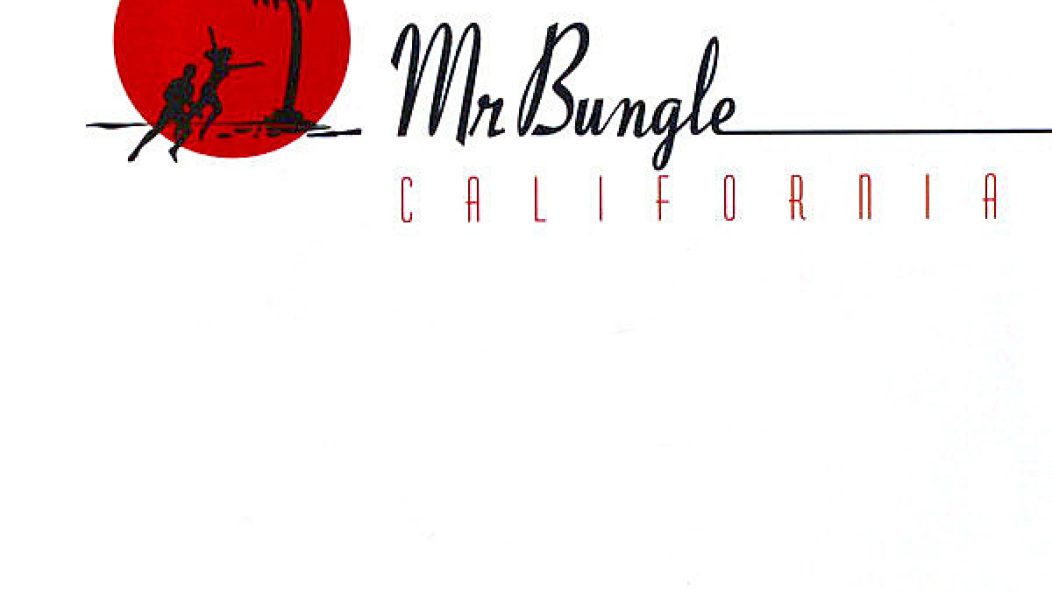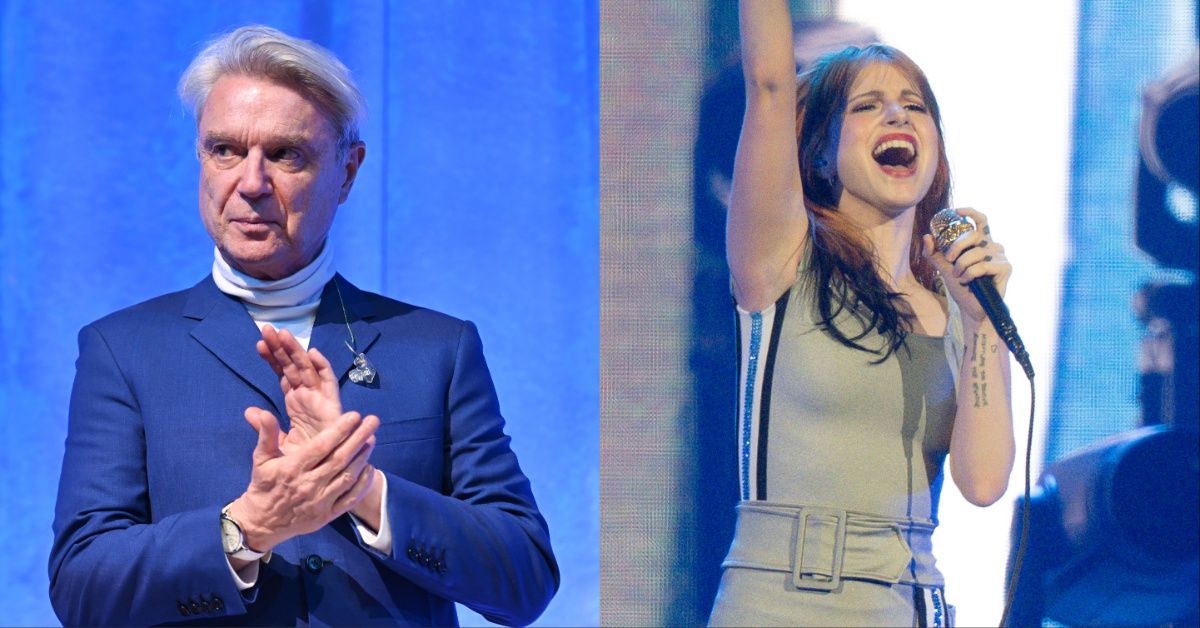
Brilliant Madness: Mr. Bungle's Ever-Wild "California" Turns 20
…
Editor’s note: this album’s release date is actually July 13th, 1999, not June 13th. There was some discrepancy among the typical sources for release dates. In any case, it’s still a great time to celebrate this one.
…
We have barely embarked upon the Information Age and already our understanding of the science behind existence has left us drooling like blockheads impatiently waiting for recess; the more granular we see the universe, the more complex the system appears and paints our tenure as a random stroke of fate. Floating in that expansive landscape of knowledge sits Mr. Bungle, the San Francisco treat who, over a decade, laid waste to a prude musical landscape content operating with earplugs and blindfolds. They cultivated their own complex universe whose parts, embracing both regimen and disorder, inspired awe with increasing perspective and closer examination. Over three full-length albums, they matured from funk metal madness to tenebrous soundscapes and concluded with the beach musings of a madman.
California, released 20 years ago today, finalized a trilogy of what amounts to a documentary of their own interests. A trip through their early demos reveals a group degenerating from early thrash and death metal to their self-titled debut, which captured elements of ska, funk, metal, and teenaged sexual inclinations with an unscrambled Spice channel. Their notorious live shows presented them as asylum ward escapees blending the worlds of BDSM and a circus freak show. It made a significant impact and fans came to develop expectations — little did they know, though, that this era was only a phase, one they treated as subject matter purely of their own interests.
Four years later, Disco Volante, arguably one of the more dense and sophisticated pieces of modern music, removed the clown masks only to reveal living monsters. Gone are the playful lyrics depicting lewd sexual acts and odes to masturbation; they had been replaced with avant-garde collages and invented languages. Whereas they previously reveled in the balance of light and dark, Disco Volante steered primarily toward the uncomfortable. Live, they no longer covered Mr. Rogers but instead Ennio Morricone, Peter Thomas, and Corrosion of Conformity. They took power away from the listener and presented them with something so foreign and intriguing that you never saw the bat swinging for your temple.
Another four years quietly passed before California emerged as a compromise, albeit one reached with no regard for outside opinion. While more friendly on the ears than Disco Volante, it manipulated the dense and obscure into something more objectively palatable to the casual listener. The Beach Boys, and Pet Sounds in particular, play an obvious influence but despite the return of a playful spirit, the boys are dead serious. Skits have been replaced with tight and focused compositions that lure you in for a second drink before your eyes flutter open in a bathtub full of ice. This is their glorious, hideous, and revolutionary interpretation of pop music.
…
…
Seagulls introduce opener “Sweet Charity,” evoking contemplative walks on the beach before Burt Bacharach invites us to a picnic and offers something funny to smoke. The sun symbiotically reflects off the waves, and for a moment you believe that you’ve found utopia, but you can also see the waste lapping ashore while a couple on holiday snaps photos. Before long, you question the limitations of beauty when paired with existential grief and suddenly the album establishes a theme, one of simultaneous glamour and gore that forces you to either redefine old terms or mature into new ones.
The track “None Of Them Knew They Were Robots” shakes the foundation with country western swing orchestrated by the devil and answers the question, “What would Mr. Bungle sound like as the house band for a 1950s flick documenting the antics of rebellious teenagers?” It moves with vengeance and those are Mike Patton’s hands pushing you closer to the cliff’s edge. His cadence attacks the groove and encourages your inner demons to dance, while Trey Spruance spews madness and fire from your right. He transforms his guitar into a ray gun from an Ed Wood flick and polishes rather than overplays. Collectively, they have hijacked the sermon and the parish loves every moment.
There’s even a soulful ballad that has the audience raising lighters and pumping fists by its arena rock conclusion. Partners out for an evening may feel inclined to sway in rhythm with the slower and more forgiving tempo on “Retrovertigo”; Patton transmits earnestness and a lover could close their eyes and melt into their companion’s arms during the chorus. Once bassist Trevor Dunn shares the track’s larger meaning, all amorous thoughts quickly evaporate with the icy touch of sober truths:
I was thinking of stylistic trends in fashion and music that I saw happening in a way I found vapid and superficial and I jokingly asked ‘if looking to the past is so cool, why not go back to famine and stylize that?’ And then I thought, well, famine still exists actually. It has never completely gone away, it has out-lived all fads and there is a sickening imbalance to that versus people with too much money who are so bored and soulless that they latch onto trends… In the lyrics I say “Post-ironic remains a mouth to feed”. In other words, the ‘real’ and the authentic and the genuine are starving to death while irony thrives and a bored and jaded Western culture markets that starvation. The rich get richer. The have and the have-nots, etc.
— Trevor Dunn (from an interview with Faith No More Followers)
Inspired by spaghetti westerns and one-sided relationships, the song “Pink Cigarette” atypically stays on track and documents the sweet taste of revenge via the selfish act of suicide. The band, sympathetic to the fragile nature of our narrator, gently delivers the music and shows how well they can perform with each-other, rather than out-performing one-another. It ends with a flatline interrupting the music as Patton counts down the hours until the villain returns home to find a lovesick corpse… you know, another lyrically uplifting track.
In many respects, “Golem II: The Bionic Vapour Boy” most closely resembles something from their first album and imagines Stevie Wonder performing on an underground cult horror classic. The funk makes you quiver rather than boogie and feels composed by a basement dweller with stained sweatpants. In an album full of punctual swing, it feels spontaneously composed and together lightens the mood and compels you to double-check the locks.
California‘s closing song does away with the formalities and demolishes the walls between several clubs, leaving the audience for reggae, Middle Eastern music, and heavy metal to enjoy each other’s company. Unsurprisingly, none of the genre blending feels forced, and Patton navigates roles like he’s on Broadway. While the lyrical meaning remains esoteric, his ability to slide through multiple perspectives within the same song is unparalleled. Much like “Dead Goon” and “Merry Go Bye Bye,” Mr. Bungle memorably end the album with an epic game of tension and release that leaves you sweating and in dire need of a cigarette.
…
…
Music nerds love to examine how past albums fit into the modern landscape, but Mr. Bungle orbits an entirely different galaxy. They aligned with no genre and therefore felt no obligation to an audience, which allowed them to create timeless and irreplaceable works. Bands pilfered from their brilliance, but their influence predominantly came from obscure sources, thus rendering them foreign within the greater music context. No matter what your enjoy, the collective members have studied it more thoroughly, better comprehend its larger meaning, and will document it through their own lens as a last will and testament.
Much has changed in music since its release, but two decades later, California remains a landmark. It made the complex seem effortless, in contrast to their earlier work which make the difficult sound laborious, and it transports you to a world where the impossible manifests. With each piece, they labored over every sound to best encapsulate a specific intent, no matter if that noise captures klezmer, death metal, and free jazz concurrently. They perfected a style no one knew existed and their legend will only continue to grow as our inability to grasp larger concepts maintains its downward trajectory.
…
California released on June 13th, 1999 via Warner Bros. Records.
…
Support Invisible Oranges on Patreon and check out our merch.
…











